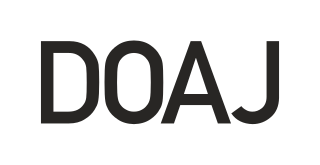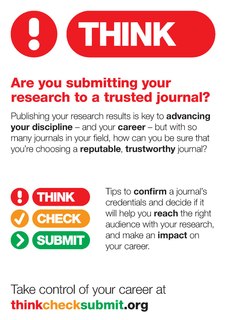
Academic publishing is the subfield of publishing which distributes academic research and scholarship. Most academic work is published in academic journal articles, books or thesis' form. The part of academic written output that is not formally published but merely printed up or posted on the Internet is often called "grey literature". Most scientific and scholarly journals, and many academic and scholarly books, though not all, are based on some form of peer review or editorial refereeing to qualify texts for publication. Peer review quality and selectivity standards vary greatly from journal to journal, publisher to publisher, and field to field.

Open access (OA) is a set of principles and a range of practices through which research outputs are distributed online, free of cost or other access barriers. With open access strictly defined, or libre open access, barriers to copying or reuse are also reduced or removed by applying an open license for copyright.

The Budapest Open Access Initiative (BOAI) is a public statement of principles relating to open access to the research literature, which was released to the public February 14, 2002. It arose from a conference convened in Budapest by the Open Society Institute on December 1–2, 2001 to promote open access – at the time also known as Free Online Scholarship. This small gathering of individuals is recognised as one of the major defining events of the open access movement. On the occasion of the 10th anniversary of the initiative, it was reaffirmed in 2012 and supplemented with a set of concrete recommendations for achieving "the new goal that within the next ten years, OA will become the default method for distributing new peer-reviewed research in every field and country."

The Directory of Open Access Journals (DOAJ) is a website that hosts a community-curated list of open access journals, maintained by Infrastructure Services for Open Access (IS4OA). The project defines open access journals as scientific and scholarly journals making all their content available for free, without delay or user-registration requirement, and meeting high quality standards, notably by exercising peer review or editorial quality control. DOAJ uses the Budapest Open Access Initiative's definition of open access to define required rights given to users, for the journal to be included, as the rights to "read, download, copy, distribute, print, search, or link to the full texts of [the] articles, or use them for any other lawful purpose". The mission of DOAJ is to "increase the visibility, accessibility, reputation, usage and impact of quality, peer-reviewed, open access scholarly research journals".

Self-archiving is the act of depositing a free copy of an electronic document online in order to provide open access to it. The term usually refers to the self-archiving of peer-reviewed research journal and conference articles, as well as theses and book chapters, deposited in the author's own institutional repository or open archive for the purpose of maximizing its accessibility, usage and citation impact. The term green open access has become common in recent years, distinguishing this approach from gold open access, where the journal itself makes the articles publicly available without charge to the reader.
The "Subversive Proposal" was an Internet posting by Stevan Harnad on June 27 1994 calling on all authors of "esoteric" research writings to archive their articles for free for everyone online. It initiated a series of online exchanges, many of which were collected and published as a book in 1995: "Scholarly Journals at the Crossroads: A Subversive Proposal for Electronic Publishing". This led to the creation in 1997 of Cogprints, an open access archive for self-archived articles in the cognitive sciences and in 1998 to the creation of the American Scientist Open Access Forum. The Subversive Proposal also led to the development of the GNU EPrints software used for creating OAI-compliant open access institutional repositories, and inspired CiteSeer, a tool to locate and index the resulting eprints.
A hybrid open-access journal is a subscription journal in which some of the articles are open access. This status typically requires the payment of a publication fee to the publisher in order to publish an article open access, in addition to the continued payment of subscriptions to access all other content. Strictly speaking, the term "hybrid open-access journal" is incorrect, possibly misleading, as using the same logic such journals could also be called "hybrid subscription journals". Simply using the term "hybrid journal" is accurate.
Science 2.0 is a suggested new approach to science that uses information-sharing and collaboration made possible by network technologies. It is similar to the open research and open science movements and is inspired by Web 2.0 technologies. Science 2.0 stresses the benefits of increased collaboration between scientists. Science 2.0 uses collaborative tools like wikis, blogs and video journals to share findings, raw data and "nascent theories" online. Science 2.0 benefits from openness and sharing, regarding papers and research ideas and partial solutions.
Bentham Science Publishers is a company that publishes scientific, technical, and medical journals and e-books. It publishes 120+ subscription-based academic journals and over 60 open access journals. It is based at Sharjah in the United Arab Emirates, and has operating units in the United States, Japan, China, India, and the Netherlands. The company has satellite offices in the United States, China, India, Japan and Pakistan. As of 2018 40 Bentham Science journals have received JCR impact factors.
An open-access mandate is a policy adopted by a research institution, research funder, or government which requires or recommends researchers—usually university faculty or research staff and/or research grant recipients—to make their published, peer-reviewed journal articles and conference papers open access (1) by self-archiving their final, peer-reviewed drafts in a freely accessible institutional repository or disciplinary repository or (2) by publishing them in an open-access journal or both.

The Open Access Scholarly Publishers Association (OASPA) is a non-profit trade association representing the interests of open access journal publishers globally in all scientific, technical and scholarly disciplines. Along with promoting open access publishers, OASPA sets best practices and provides a forum for the exchange of information on and experiences of open access. OASPA brings together the major open access publishers on the one hand and independent—often society-based or university-based—publishers on the other, along with some hybrid open access publishers. While having started out with an exclusive focus on open access journals, it is now expanding its activities to include matters pertaining to open access books too.
Scholarly peer review is the process of subjecting an author's scholarly work, research, or ideas to the scrutiny of others who are experts in the same field, before a paper describing this work is published in a journal, conference proceedings or as a book. The peer review helps the publisher decide whether the work should be accepted, considered acceptable with revisions, or rejected.
Academic journal publishing reform is the advocacy for changes in the way academic journals are created and distributed in the age of the Internet and the advent of electronic publishing. Since the rise of the Internet, people have organized campaigns to change the relationships among and between academic authors, their traditional distributors and their readership. Most of the discussion has centered on taking advantage of benefits offered by the Internet's capacity for widespread distribution of reading material.

PeerJ is an open access peer-reviewed scientific mega journal covering research in the biological and medical sciences. It is published by a company of the same name that was co-founded by CEO Jason Hoyt and publisher Peter Binfield, with initial financial backing of US$950,000 from O'Reilly Media's O'Reilly AlphaTech Ventures, and later funding from Sage Publishing.

Predatory publishing, sometimes called write-only publishing or deceptive publishing, is an exploitative academic publishing business model that involves charging publication fees to authors without checking articles for quality and legitimacy and without providing editorial and publishing services that legitimate academic journals provide, whether open access or not. They are regarded as predatory because scholars are tricked into publishing with them, although some authors may be aware that the journal is poor quality or even fraudulent. New scholars from developing countries are said to be especially at risk of being misled by predatory publishers. According to one study, 60% of articles published in predatory journals receive no citations over the five-year period following publication.
An article processing charge (APC), also known as a publication fee, is a fee which is sometimes charged to authors to make a work available open access in either an open access journal or hybrid journal. This fee may be paid by the author, the author's institution, or their research funder. Some publishers waive the fee in cases of hardship or geographic location, but this is not a widespread practice. An article processing charge does not guarantee that the author retains copyright to the work, or that it will be made available under a Creative Commons license.
ScienceOpen is a website. It is freely accessible for all and offers hosting and promotional services within the platform for publishers and institutes. The organization is based in Berlin and has a technical office in Boston. It is a member of CrossRef, ORCID, the Open Access Scholarly Publishers Association, STM Association and the Directory of Open Access Journals. The company was designated as one of “10 to Watch” by research advisory firm Outsell in its report “Open Access 2015: Market Size, Share, Forecast, and Trends.”
The following is a timeline of the international movement for open access to scholarly communication.

The idea and practise of providing free online access to journal articles began at least a decade before the term "open access" was formally coined. Computer scientists had been self-archiving in anonymous ftp archives since the 1970s and physicists had been self-archiving in arXiv since the 1990s. The Subversive Proposal to generalize the practice was posted in 1994.








